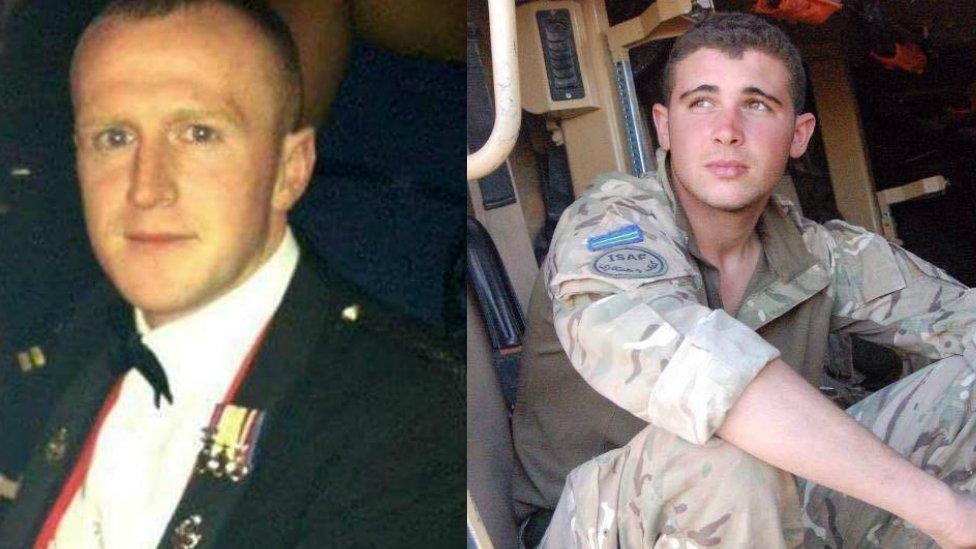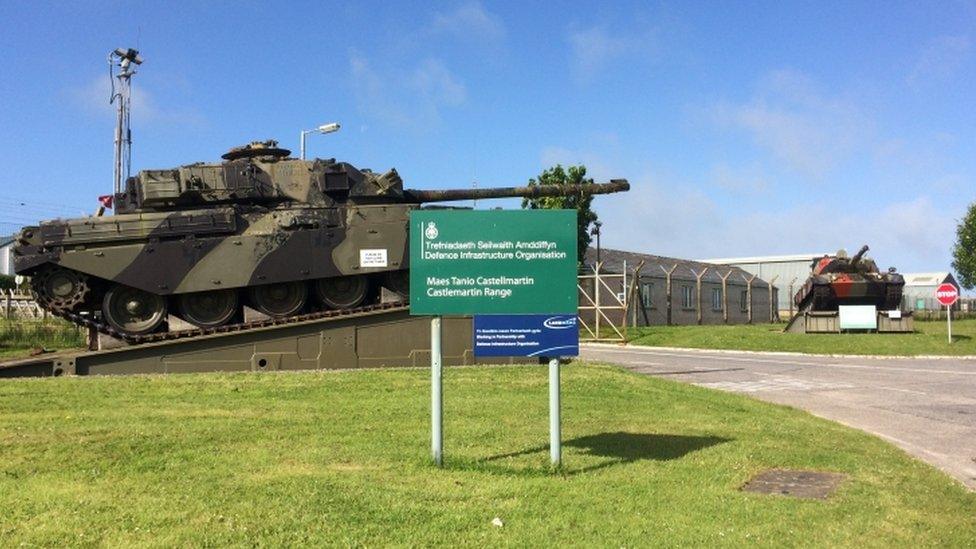Castlemartin inquest: Army chief 'sick' over tank explosives
- Published

Cpl Neilson (left) and Cpl Hatfield have been described as "exceptionally talented soldiers"
An Army commanding officer has told an inquest he felt "physically sick" when he heard crews were incorrectly storing high explosive charges in tanks.
Royal Tank Regiment corporals Matthew Hatfield, 27, and Darren Neilson, 31, died after an explosion at Castlemartin Range, Pembrokeshire, on 14 June 2017.
Two other soldiers were injured.
Lt Col Simon Ridgway, the regiment's commanding officer, admitted he had not spotted that charges were being stored unprotected in vehicles.
Asked if it was a failure of his leadership, he told the inquest in Solihull: "I think I failed to identify it was happening. I'm not sure it's a failure of leadership."
Crews received regular safety briefings on the proper storage of bag charges, but Lt Col Ridgway said it was "difficult" to see "what happens inside that turret", once tanks went into action.

The Castlemartin base covers 2,400 hectares of land on the Pembrokeshire coast
Senior Coroner for Birmingham and Solihull, Louise Hunt, previously heard evidence from soldiers who stated the charges were habitually stored outside special protective containers, called charge bins, in the turret.
Investigations carried out on the damaged tank found bag charges were "unaccounted for".
Lt Col Ridgway said the practice "had become normalised in a way I had not appreciated".
He told the inquest: "I have to admit I sort of felt physically sick when I heard people were stowing them out of the bins.
"If for one moment I suspected they were storing them incorrectly, I would have been furious."

WO Lawson survived the explosion that killed Cpl Neilson and Cpl Hatfield
Cpl Neilson, 31, of Preston, Lancashire, was the tank commander and was thrown from the Challenger 2 tank during the blast, while Cpl Hatfield, 27, from Amesbury, Wiltshire, was loading ammunition.
Two other soldiers, Warrant Officer Stuart Lawson, and Trooper Michael Warren, were also injured but survived.
WO Lawson, a quartermaster sergeant instructor who was based at the range, had successfully requested to be on board the tank and was allowed to fire it for a "guest shoot".
But when the tank fired, it was missing a vital piece of equipment, external which creates an air-tight seal in the gun barrel and prevents 3,000C hot gases escaping into the crew turret.
The part had been removed for routine cleaning by a previous crew, and not yet been replaced.
Both of the killed men served with the Royal Tank Regiment in Tidworth, Wiltshire.
The inquest continues.
- Published5 July 2018

- Published3 July 2018

- Published2 July 2018
